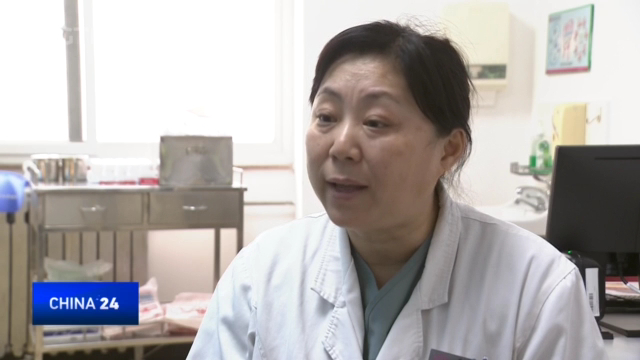
21:08, 22-Dec-2018
Menstrual Leave Policy: Paid leave triggers debates over feasibility and equity
Updated
20:51, 25-Dec-2018
03:31

China's eastern Shandong province is set to give female workers a break. The government there has plans to give women who suffer from severe menstrual pain one or two days off every month, after presenting a doctor's certificate. But CGTN reporter Feng Yilei finds out in a hospital in Beijing, the policy isn't always taken advantage of.
Unbearable cramps, the body aching and weak all over, as if there's a grinder inside - That's how some women describe menstrual pain. As China's period-care app Dayima reports, 4 out of ten Chinese women struggle with this hard time. Miss Yang, as she would like to be known, is one of them.
MISS YANG PATIENT "Others can not feel such pain. I usually rest at home on the first day of menstruation, preferably the first two days. You are unable to work as your abdomen hurts whenever you move. Unlike scratches on the surface, it's uncontrollable and even painkillers cannot fully stop it."
In China, many provinces have granted menstrual leave as part of efforts to protect female workers. Some request that women on leave be fully paid. But although the paid-period leave policy has been in place for nearly two decades, most employees in Beijing are still unwilling to take advantage.
MISS ZHAO PATIENT "Those who don't have this issue and cannot benefit from the policy may find it unfair. But if everyone takes the leave how can work be done? As for companies I've worked for, some allow me to take normal sick leave, whereas in some I use my annual leave quota. But, I feel bad to ask for leave every month."
And for doctors, it is also a big challenge to tell whether the patient really needs days off.
LI HUI, DEPUTY DIRECTOR OF PHYSICIANS GYNECOLOGY DEPT., BEIJING OBSTETRICS AND GYNECOLOGY HOSPITAL "We have specific standards to rate the level of menstrual pain but it is mainly based on patients' descriptions. When it comes to permission for paid leave, some might exaggerate their symptoms. I cannot be sure that every word they say is accurate but at least we can control for the days of rest. If you want a paid leave, you must apply during your period so I can diagnose it properly."
But the doctor admits that, in fact, only a handful of people come to her for the certificate for menstrual leave.
FENG YILEI BEIJING "For women suffering from menstrual pain, getting medical diagnoses on requested days off means dragging themselves all the way to the hospital, waiting for hours and convincing the doctor. But even after they get this piece of paper, many worry that this entitlement comes at the cost of less pay, less authority, and fewer opportunities, yet facing more stigmas at the workplace."
PROF. LIU BOHONG CHINA WOMEN'S UNIVERSITY "When some labor costs more, employers will tend to use the cheaper ones. The regulation will actually raise the requirement for women and narrow their career options. Who dares ask for that in a fiercely competitive labor market? Unlike maternity leave, where do the funds for paid period leave come from?"
While supporters hail the rule for lifting the silence about women's necessary bodily functions, many believe a favorable environment for equal development instead of a glorified segregation is what Chinese women really need. FYL, CGTN, Beijing.

SITEMAP
Copyright © 2018 CGTN. Beijing ICP prepared NO.16065310-3
Copyright © 2018 CGTN. Beijing ICP prepared NO.16065310-3